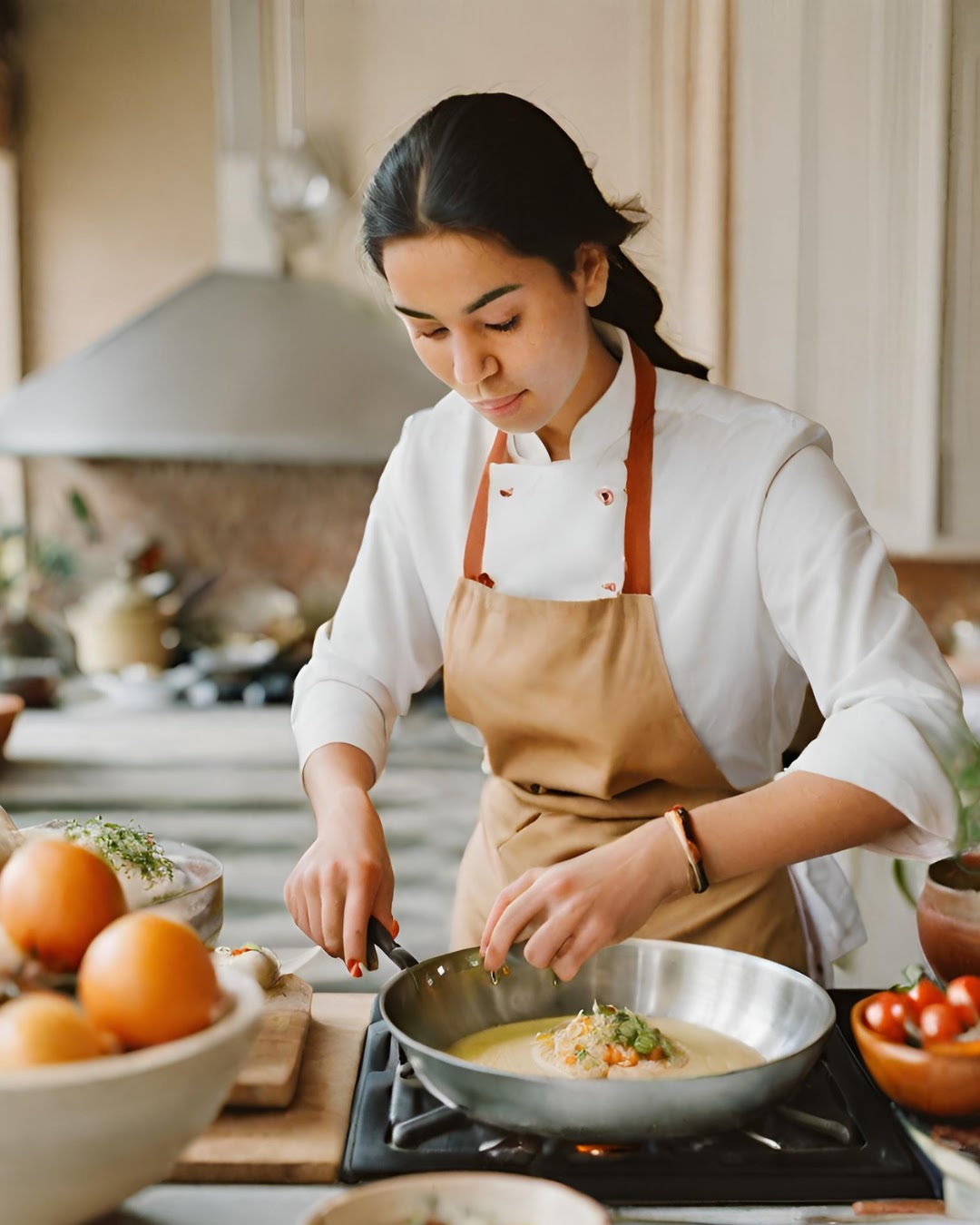Cooking is a transformative and rewarding skill that not only nourishes our bodies but also satisfies our senses and brings people together. Learning to cook is like embarking on a journey, one that takes you from basic food preparation to mastering the art of creating exquisite dishes. In this article, we will explore the joys of learning to cook, the benefits it brings, and the steps you can take to become a proficient home chef.
The Joys of Learning to Cook
1. Creativity Unleashed
Cooking is a form of art where the kitchen becomes your canvas, and ingredients are your colors. As you learn to cook, you will discover the boundless possibilities for creativity. You can experiment with flavors, textures, and presentation, creating dishes that are not only delicious but also visually stunning.
2. Healthier Choices
When you cook at home, you have control over the ingredients you use, allowing you to make healthier choices. You can choose fresh, organic produce and lean proteins, avoiding the excess salt, sugar, and preservatives often found in processed foods. Learning to cook empowers you to take charge of your diet and make choices that promote better health.
3. Cost-Efficiency
Eating out can be expensive, and it's often difficult to find healthy options at affordable prices. Learning to cook can help you save money in the long run. Cooking at home is not only more cost-effective but also allows you to stretch your budget while enjoying delicious meals.
4. Bonding with Others
Cooking is a social activity that brings people together. Whether you're cooking for your family, friends, or a special someone, preparing a meal and sharing it with others fosters a sense of connection and togetherness. It's an opportunity to create lasting memories and strengthen relationships.
Benefits of Learning to Cook
1. Improved Nutrition
One of the most significant advantages of learning to cook is the ability to control what goes into your meals. You can choose wholesome ingredients, monitor portion sizes, and avoid excessive fats, sugars, and additives. This can lead to a more balanced and nutritious diet, ultimately improving your overall health.
2. Enhanced Culinary Skills
As you progress in your cooking journey, you'll develop a wide range of culinary skills, from chopping and sautéing to baking and grilling. These skills not only make you a more capable home chef but also open the door to trying more complex recipes and techniques.
3. Greater Food Variety
When you cook, you're not limited to a specific menu or cuisine. Learning to cook allows you to explore different flavors and cuisines from around the world. You can experiment with exotic ingredients and recipes, expanding your palate and appreciation for diverse culinary traditions.
4. Increased Independence
Cooking is a valuable life skill that promotes independence. Knowing how to prepare your own meals means you're less reliant on takeout or pre-packaged foods. It gives you the freedom to choose what you eat, when you eat it, and how it's prepared.
5. Stress Reduction
Cooking can be a therapeutic activity that helps reduce stress and promote relaxation. The act of chopping vegetables, stirring sauces, and focusing on a recipe can be meditative, providing a mental break from the demands of daily life.
Steps to Becoming a Proficient Home Chef
Now that we've explored the joys and benefits of learning to cook, let's delve into the practical steps to help you become a proficient home chef:
1. Start with the Basics
If you're new to cooking, begin with the basics. Learn fundamental techniques like chopping, slicing, dicing, and sautéing. Understanding these techniques will form the foundation of your culinary journey.
2. Build a Strong Foundation
Familiarize yourself with essential cooking equipment and utensils, such as knives, pots, pans, and cutting boards. Having the right tools makes cooking more efficient and enjoyable.
3. Choose Simple Recipes
Start with simple recipes that have a limited number of ingredients and straightforward instructions. As you gain confidence and experience, you can gradually tackle more complex dishes.
4. Invest in Learning Resources
There are numerous resources available to help you learn to cook, from cookbooks and online tutorials to cooking classes and TV shows. Find resources that match your learning style and preferences.
5. Experiment with Flavors
Don't be afraid to experiment with different herbs, spices, and seasonings. Learning how to balance flavors is a crucial aspect of cooking. Taste as you go and adjust seasoning as needed.
6. Practice, Practice, Practice
Like any skill, cooking improves with practice. Cook regularly and challenge yourself with new recipes and techniques. Don't be discouraged by occasional failures; they are part of the learning process.
7. Learn from Mistakes
Every home chef makes mistakes in the kitchen, even experienced ones. Instead of dwelling on them, view them as opportunities to learn and improve. Analyze what went wrong and how you can avoid similar issues in the future.
8. Expand Your Knowledge
Broaden your culinary knowledge by exploring different cuisines and cooking styles. Try cooking dishes from various regions of the world to expand your repertoire and gain a deeper understanding of global flavors.
9. Seek Feedback
Invite friends and family to taste your creations and provide feedback. Constructive criticism can help you refine your skills and make improvements.
10. Enjoy the Process
Above all, remember to enjoy the process of learning to cook. Cooking should be a fun and rewarding experience. Embrace the journey, savor the flavors, and relish the satisfaction of creating delicious meals.
Conclusion
Learning to cook is a journey filled with joy, discovery, and
numerous benefits. It empowers you to take control of your diet, explore your
creativity, and build valuable life skills. Whether you're a novice in the
kitchen or a seasoned cook looking to refine your skills, the path to becoming
a proficient home chef is filled with endless opportunities for growth and
enjoyment. So, don your apron, gather your ingredients, and embark on this
culinary adventure—it's a journey well worth taking. Happy cooking!








0 Comments